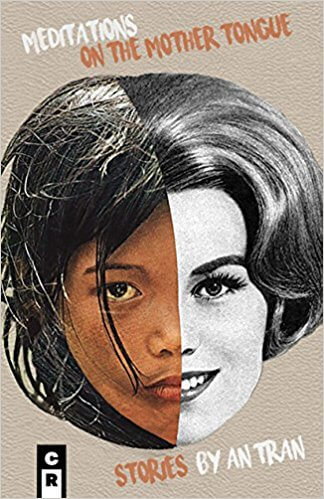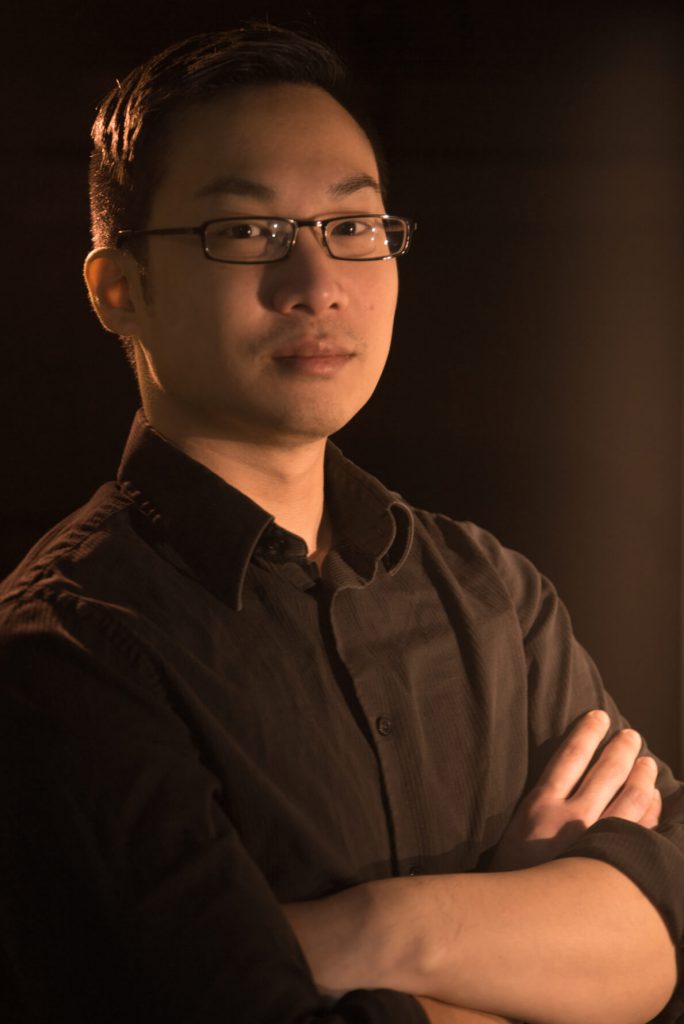Getting Lost in Language: An Tran on His Debut Collection, Meditations on the Mother Tongue
The son of Vietnamese refugees who arrived in the United States around the 1975 Fall of Saigon, An Tran—whose debut collection of short stories, Meditations on the Mother Tongue, came out in February—has a keen eye for the tensions between homeland traditions and contemporary American culture. I had the pleasure of reading parts of the book during our low-residency MFA program at Queens University in Charlotte; his early work made a huge impression on me back then. In their final form, these twelve indelible stories are grounded in linguistics, science and the supernatural, spanning Malaysia, Hanoi, Sumatra and the United States. He deftly dissects the relationship between language and cognition, the complexities of animal communication, and the Western gaze’s toxic colonialist lens. In “A Clear Sky Above the Clouds,” Teuku, a young Sumatran, assists American archaeologists on a treacherous dig. “These Americans, always thinking they can change the way of things,” he says, “Eventually, we too shall pass and the world will heal from our actions.”
We spoke with Tran, who lives in Northern Virginia, over the phone.

Brooklyn Magazine: A few of your stories tackle English-to-Vietnamese translation, and the differences in sounds and concepts found in one language that are absent in the other. What inspired this?
I don’t speak fluent Vietnamese. It was my native language, my first language. I was fluent as a young child, and semi-fluent until about ages sixteen to seventeen. Now I can understand Vietnamese, but can’t speak it. My reflections about this weren’t super-intentional in the book, but perhaps more of a personal obsession. When I listen to my parents speak, I know exactly what they’re saying. But ten to fifteen minutes later, if I try to remember the exact phrasing, I can’t do it. It’s frustrating. For example, if my father tells me to bring him a hammer in Vietnamese, I understand him. But later, I can’t remember the Vietnamese word for “hammer.”
There are really interesting parallels in the languages, too. For example, in English, the word “right,” (meaning the direction) is spelled and pronounced the exact same way as “right,” (meaning correct). It’s a homonym. Vietnamese has the same homonym. “Phai” translates to right, meaning both direction and correct.
And there are interesting departures in the languages as well. In the title story, Bao explains that the Vietnamese word “xanh” means both blue and green.
Blue and green are the same word in Vietnamese because in Vietnamese they are the same color. If I just go with the Vietnamese word for blue and green, I don’t need to decide what color Listerine is. It’s “xanh.”
What’s it like to understand a language you can’t speak?
At times it feels alienating. My father speaks Vietnamese fluently, and I speak English fluently. So I only share a few functional words with my father, and as a result, we’re not particularly close.
So the lack of a common fluency influences the relationship?
Language creates identity. And because it creates identity it also creates community. Not being able to speak my parents’ native language means I’m always looking at Vietnamese culture from a distance. I was raised in it, but I also have this outward Western gaze, like Orientalism, to some extent. And because I don’t know the language, I definitely don’t feel like I’m fully part of Vietnamese-American culture.
Do the stories in Meditations help you bridge this gap?
I think because I’ve lost my native language—my tether to Vietnamese ethnic identity—I’ve come to use writing as a means of re-contextualizing Vietnamese culture for a mind like mine, one that perceives reality the way that an American Anglophone does. A lot of my stories have been deliberate efforts on my part to examine ritual aspects of Vietnamese culture and give them renewed meaning for American culture and for Asian American culture. And writing these stories allowed me to reclaim my ethnic culture, which I had felt almost completely lost growing up in the United States, and helped me to see the relevance this culture still has to being an American in the 21st century.
How does your exploration of language tie in to your interest in animal communication, which you write about in several of the stories?
I don’t ever think of animals without thinking about their level of conscious or how they communicate. Animals are sentient beings. They have thoughts and feelings. If we can understand them, we can commune with another kind of conscious being.


So what do you think is the relationship then between language and communication?
Language is an imperfect means of communication, because the meaning behind symbols is arbitrary, and so understanding can never be complete. But this is its beauty and what opens it up to being played with. The arbitrary nature of signs and signifiers is what gives us as writers our artistic freedom when using language.

I remember a conversation we had at school a few years ago, about toxic masculinity. Your characters in Meditations resist it. They are expressive, sensitive, and vulnerable.
Growing up, I was sentimental and I wasn’t allowed to feel that it was okay to feel the emotions I felt. So I decided to make a lot of the characters in my stories broken in the same way—sentimental but culturally restricted in their expression of their sentimentality. It’s common for men to be made to be ashamed of their feelings, or to be culturally defined as feminine. To long to feel this way, as males, is to suffer the shame and judgment of not being masculine enough. A lot of men have had to deal with this, to ask themselves the question, “What do I do with my emotions and what do I want?” We’re told we should be manly, so we feel this need to be manly.
And it’s so harmful.
Masculinity is so toxic to us men. We have to live up to foolish expectations. It hurts us. Boys aren’t supposed to cry. Why shouldn’t boys cry? Just let them cry. When we teach boys that they aren’t supposed to cry, they will never cry in public for the rest of their lives. And it will take so much for them to be able to be open to anyone.
You informally study religions, particularly Eastern religions and texts. How does this knowledge influence your fiction?
My current project is a novelization, in the form of compiled Buddhist scripture, of the Buddha’s foster mother, wife, brother, and child and their life in the palace he abandons them in. I think you saw an early seed of this in workshop before I had figured out what the story was.
I do remember it. Glad to hear you’re still working on it.
My interest in religion also influences my shorter work in various ways. Religion, whether it is Buddhism or Jainism or Taoism, is about searching for and solving the problem of suffering. When I think of a character and their motivations, my first question is always, “What is the cause of suffering?” I try to look for what the protagonist is clinging to and then imagine how the suffering that arises from that attachment manifests in the character’s relationships. And then the story is just a matter of whether or not the character can arrive at the same answer, or if they’re so swept up in their conditions they can never clearly see the way out.
Photos by Scott Williams
You might also like 




















